SUMMARY
This is AI generated summarization, which may have errors. For context, always refer to the full article.
![[OPINION] The Department of Agriculture and Dictatorship](https://www.rappler.com/tachyon/2023/03/tl-agriculturedictator.jpg)
The signs were there early on, and we did not see it coming. The incoming Secretary of Agriculture was a product of martial law. The past is prologue. Unfortunately, many are either incapable of any long-term vision for the future, or we are simply dismissive of any kind of economics beyond our immediate households and current circumstances.
We should have drawn a line from 1965 when demon seeds were sown. Failing that, we remained trapped in the proverbial mud, wallowing under the attraction of political promises, however absurd if not mythical like a promise of ancient gold.
Admittedly, there are upsides. Ignorance and a warped sense of values have become integral ingredients of our resilience. These help us survive. Unfortunately, along with shortsightedness, these also deafen us from voices in the wilderness. From the middle of 2022, from the doomsayers to the most cockeyed optimist, from traditional economic forecasters to Elliott Curve theorists, there was near unanimity that the global post-pandemic economy would not simply be difficult and its resurgent demand, inflationary, but a deep global recession was imminent.
On one hand we knew we needed seasoned, qualified, and credible technocrats for the traditional team of macroeconomic managers assembled to tackle technicalities that range from monetary management, liquidity, taxes, and fiscal management, to the sourcing of finances, whether debt or equity investments.
Initially there seemed to be a glimmer amid the darkest fears of resurgent corruption, cronyism, and wholesale plunder. It was amid dread and doubts that we welcomed fresh appointments to the Bangko Sentral ng Pilipinas, the National Economic Development Authority, and the Department of Finance.
Where we failed was in recognizing the criticality of the agriculture portfolio in a post-pandemic world characterized by debilitating food inflation, especially critical for an economy as vulnerable as ours. After all, we remain largely agricultural, where food adequacy is provided by dollar-depleting importations.
Our leaders should have taken their education seriously. Had they simply glanced at and understood the basket of goods that dictates our consumer price index, then they would have quickly seen that food expenses not only skew prices upward but also provide the most volatility within the basket. Adding the concept of sticky inflation, they might have realized that the agriculture portfolio is probably the most important coming out of a pandemic.
There is this misconception that command economies, Keynesian economics, machismo autocracies, and dictatorships are better suited models for a crisis. The simplistic prevalence of the autocratic gene, that toxic DNA whose potency is founded on force, compliance, and canine subservience was to have compensated for weaknesses in traditional food governance. Unfortunately that is debunked by the unabated rise in food inflation especially impacting on the poor.
Do the math. The criticality of food is reflected in the gap between headline and core inflation. January headline inflation was 8.7%. Core inflation, 7.4%. At an average of 11.7%, food inflation alone was higher than both. The devil is in the details. Headline inflation, which includes measuring food prices, saw ordinary vegetable prices rising by as much as 37.8% for items like tubers and plantains. Progressively worsening, recently the United States Department of Agriculture (USDA) said that the Philippines will be importing even more of legumes like peas, chickpeas, and mungo beans due to a domestic fall in production.
Now check the charts. Our highest food prices were under officials neither profoundly experienced in their agricultural portfolios nor effective in developing food security. Lacking any real depth, study, and critical analysis, solutions to volatility remain autocratic if not dictatorial. Raid warehouses, take pictures, import, and repeat.
The leadership at the Department of Agriculture (DA) is the weakest we have had. Food inflation at the sari-sari store level at over 30%, the erosion of per capita GDP among farmer communities, and depressed agricultural productivity indices quantify our plight.
Justifying presidential powers infused into the complex decision-making protocols critical to competently manage agricultural development including supply chain management, pricing, and ensuring equitable returns for farmers, fisherfolk, and the consuming public already victimized by high food inflation, the president insisted on imposing his hand as agriculture secretary.
Allow us to recall ominous verbatim soundbites.
“For me in the DA, there really are things that I can do that it would take (a permanent secretary) a long time. The president, they cannot say ‘no’ to. And if they don’t fulfill my order, I can chastise them, I can move them aside, push them into other positions, etc., etc., etc.,”
“So that’s what I bring to the position: (it) is that when I make a decision, I say this is what we need to do; this is the plan; every one of you follow this plan; you do this, you will do that; we will assign tasks; these must be obeyed. We want to take that wiggle room out of that system.”
The trains might be leaving on time, but we are getting nowhere. Now we continue to be cursed with unabated incompetent agricultural management, a policy of default importations that victimize our agricultural base, and the highest food inflation in the region. – Rappler.com
Dean de la Paz is a former investment banker and managing director of a New Jersey-based power company operating in the Philippines. He is the chairman of the board of a renewable energy company and is a retired Business Policy, Finance, and Mathematics professor. He collects Godzilla figures and antique tin robots.
Add a comment
How does this make you feel?
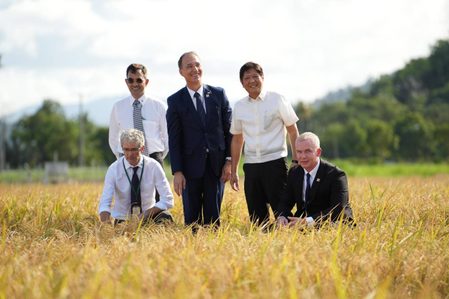

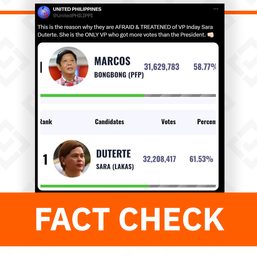
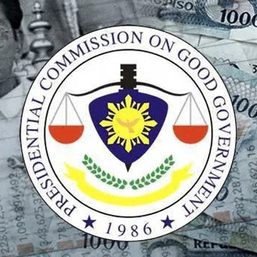
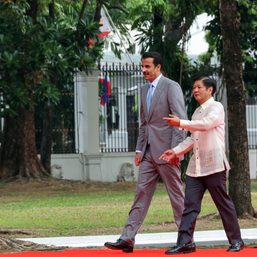
![[EDITORIAL] Ang low-intensity warfare ni Marcos kung saan attack dog na ang First Lady](https://www.rappler.com/tachyon/2024/04/animated-liza-marcos-sara-duterte-feud-carousel.jpg?resize=257%2C257&crop=294px%2C0px%2C720px%2C720px)
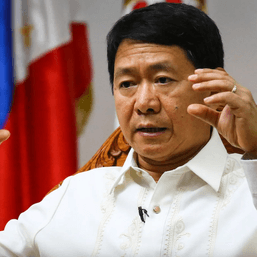
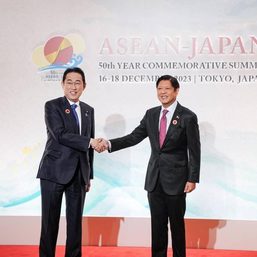
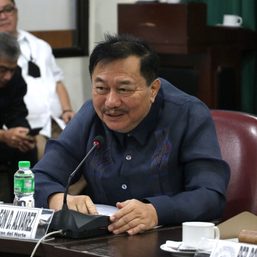
There are no comments yet. Add your comment to start the conversation.